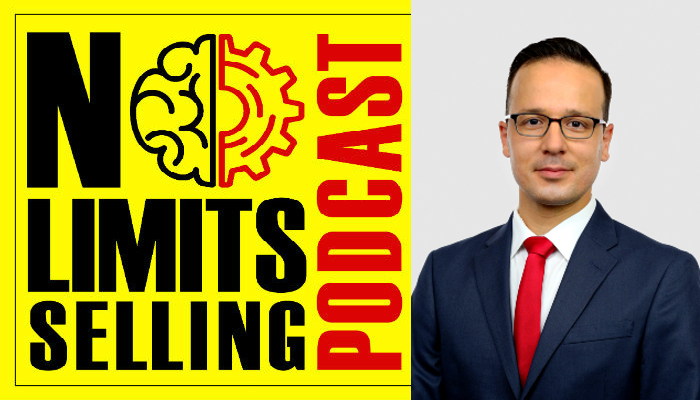How to Empower Your Agents To Succeed
On Episode 261 of The No Limits Selling Podcast, we have Lucas Dallavalle, Senior Sales/Commercial Agent at BOND New York. Born in Argentina, arrived in the New York area in 1996. Have been doing real estate in NYC for the past 10 years now. He runs his team with a partner, and train and develop agents with many success stories. In this episode, Lucas shares with us, tips on how to
empower your agents to succeed.

Contact Lucas:
[EDITOR’S NOTE: This podcast, is sponsored by No Limits Selling. It is a fun, fast-paced podcast that delivers hard-fought business advice that you can implement today to improve your sales and performance]
Check Out Our New Mindset Boosters App: Link
Find us on Social Media:
LinkedIn | Facebook community | Instagram
Like what do you listen to? Subscribe to our podcast!
Ready to become fearless? We can help you become fearless in 60 days so you accomplish more in your career Schedule A 15 min Call with Umar
Summary
Introduction and Background
The podcast is hosted by Umar Hameed, a renowned expert in changing individual and team behaviors. The guest of this episode is Lucas Dallavalle, a professional in the field of sales and marketing. Lucas shares his background and experiences in sales and marketing, providing valuable insights into the industry.
Understanding the Customer
Lucas emphasizes the importance of understanding the customer's needs and how to effectively communicate with them. He believes that a successful salesperson should be able to empathize with the customer, understand their perspective, and tailor their sales approach accordingly. This is an important factor used to empower your agents to succeed. This segment of the podcast focuses on the importance of empathy in sales.
Role of Technology in Sales and Marketing
The discussion then moves on to the role of technology in sales and marketing. Lucas discusses how technology can be leveraged to understand customer behavior and preferences. He mentions that to empower your agents to succeed, technology can provide valuable data that can be used to tailor the sales approach of your team members to meet the specific needs of each customer.
Importance of Continuous Learning
Lucas also talks about the importance of continuous learning and adapting to changes in the market. He believes that a successful salesperson should always be willing to learn and adapt to new strategies and techniques. He emphasizes the importance of being adaptable and open to learning to empower your agents in the field of sales and marketing.
Personal Experiences and Lessons Learned
Toward the end of the podcast, Lucas shares some of his personal experiences and lessons learned in his career. He shares stories about his successes and failures, and the lessons he learned from each experience. This segment provides valuable insights into the realities of a career in sales and marketing.
Faq
Who is Lucas Dallavalle and what does he specialize in?
What is the importance of understanding the customer in sales according to Lucas Dallavalle?
How does Lucas Dallavalle view the role of technology in sales and marketing?
What does Lucas Dallavalle say about the importance of continuous learning in sales and marketing?
Can you share some of Lucas Dallavalle's personal experiences and lessons learned in his career?
Don’t miss this opportunity to transform your real estate career with one-on-one coaching. As an experienced real estate coach, I, Umar Hameed, am dedicated to helping you unlock your full potential and achieve your real estate goals. To learn more about who am I and my clients ↓
If you’re ready to take the next step, book an appointment with me today and begin your journey toward success in the real estate industry.
